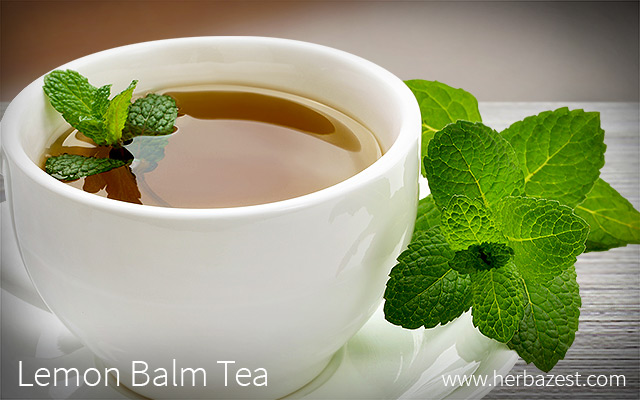The lemon balm plant has a variety of uses and serves a wide range of purposes, but there's no doubt one of the most popular ways to use lemon balm leaves is as a tea. They can be combined with other herbs (e.g., spearmint, lavender, valerian) and with different kinds of tea (e.g., Earl Grey, green tea, black tea). Whether they are fresh or dried, lemon balm leaves can be drank as a hot infusion or added to an iced tea to make it even more refreshing. Learn about how to make lemon balm tea and its many benefits.
How to Make Lemon Balm Tea
Making tea of lemon balm with fresh or dried leaves is very easy. However, fresh leaves will bring not only a stronger flavor, but the best of lemon balm's benefits. Here are some basic steps to help you brew the perfect lemon balm tea.
1. Crush the leaves with your hands or with a cocktail muddler to release their essential oils. If using a teapot, they can be added loose; otherwise, put them in tea balls, infusers, or tea bags.
2. For each cup of hot water, add one teaspoon of dried lemon balm leaves or one tablespoon fresh lemon balm leaves. Amounts can be adjusted to suit your taste.
3. Pour boiling water over the tea in the teapot or cup.
4. Let steep for four to six minutes.
5. Pour into cups (strain first if loose herbs were used) and add lemon or sweetener if desired.
To potentiate its relaxant and sedative actions, lemon balm tea is often infused with other herbs that have similar properties, such as valerian, lavender, and chamomile.
Benefits of Lemon Balm Tea
The tea of lemon balm has been traditionally used to relieve stress, insomnia, palpitations, and stomach complaints related to nervousness. Science has corroborated these and other health benefits, linking lemon balm leaves' pharmacological properties to their principal constituents, mainly rosmarinic acid, which has shown antiviral and antioxidant actions; its essential oil, responsible for its spasmolytic and antimicrobial properties; and its alcohols, which have demonstrated sedative effects.
The benefits of lemon balm tea have been reaped for over 2,000 years, which is a testimony of its medicinal actions and unique flavor. Drinking a cup of hot lemon balm tea every night will calm your nerves and help you get restful sleep.
Sources
- American Society of Horticultural Science, Growing Herbs for Tea
- Herb Society of America, Lemon Balm: An Herb Society of America Guide
- Indiana Medical History Museum, Guide to the Medicinal Plant Garden




